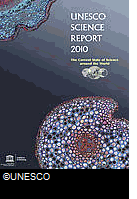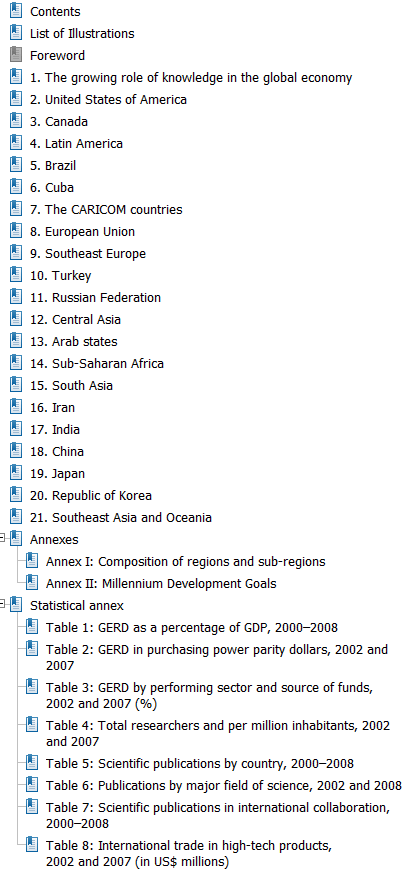|
|
|
|
|
|
|
News & Views item - November 2010 |
![]() UNESCO's
Science Report 2010: The Current Status of Science around the World.
(November 12, 2010)
UNESCO's
Science Report 2010: The Current Status of Science around the World.
(November 12, 2010)
 It's
been five years since the last UNESCO science report was issued. Now in some 540
pages the
UNESCO SCIENCE REPORT 2010: The Current Status of Science around the World
It's
been five years since the last UNESCO science report was issued. Now in some 540
pages the
UNESCO SCIENCE REPORT 2010: The Current Status of Science around the World![]() analyses the relative positions of the member nations and the changes as
regards their support for science and their contributions, i.e. their
publications.
analyses the relative positions of the member nations and the changes as
regards their support for science and their contributions, i.e. their
publications.
In introducing the report the UNESCO director-general, Irina Bokova writes that the report: "shows in particular how, while the disparities between countries and regions remain huge, the proliferation of digital information and communication technologies is increasingly modifying the global picture. By making codified information accessible worldwide, it is having a dramatic effect on the creation, accumulation and dissemination of knowledge, while at the same time providing specialized platforms for networking by scientific communities operating at a global level."
So the report makes the case that a world in which science and technology were dominated by the European Union, Japan and the USA is slowly being displaced with an increasing number of public and private research hubs spreading across the Northern and Southern hemispheres.
It also makes the point that while there is overall progress (though slow) in support for science and technology it also finds that there are "persistent disparities between countries and, in particular, the marginal contribution that the least developed countries (LDCs) make to global science and in particular it notes the lack of progress in many of the African nations.
As to the future: "There are two possible scenarios for the way in which the geopolitics of science will shape the future. One is based on partnership and co-operation, and the other on efforts towards national supremacy."
Below is the report's Table of Contents:
